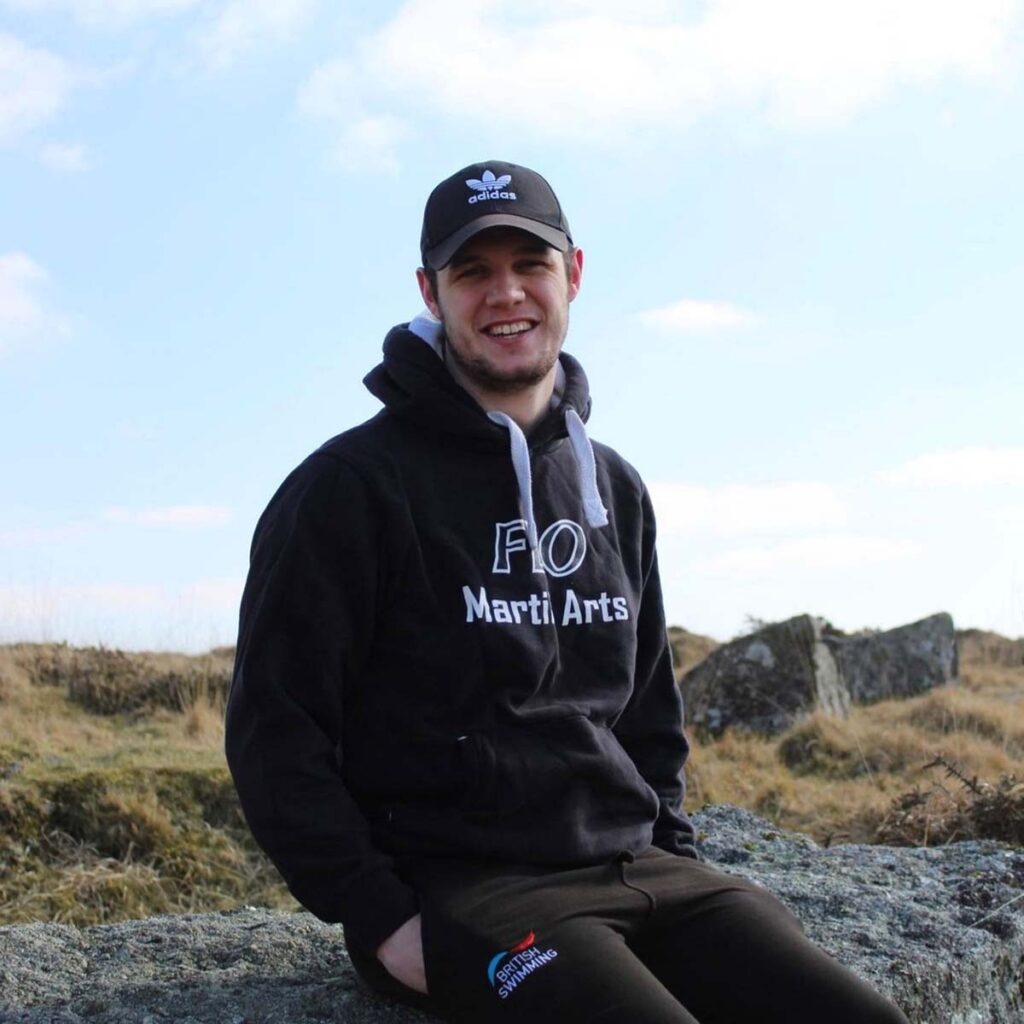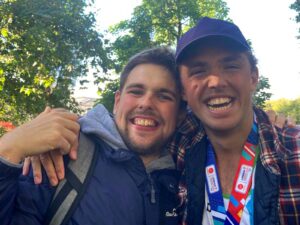Reece Dunn: Following your passion

A typical day for Reece Dunn starts at 6am with two hours of swimming – such is the life of a Paralympic champion.
The 26-year-old made headlines at the Games in Tokyo this summer when he won gold in the S14 category 200m freestyle, 200m individual medley, and mixed 4x100m freestyle relay, as well as silver in the 100m butterfly and bronze in the 100m backstroke.
Reece spoke to spautism.com on his first day of training following the Paralympics, with his mind fixed on 2022 competitions such as the World Para Swimming Championships in Madeira and the Commonwealth Games in front of a home crowd in Birmingham.
But even for someone who holds three world records, Reece’s life is more than just about swimming – and he revealed what he got up to away from the pool after his success in Tokyo.
“My friends were moving into their new house so I was helping them, and me and my girlfriend have been doing lots of day trips like Go Ape in Exeter, which was nice – my fitness is all in the pool so outside of the water is difficult.
“We also had a little party for my birthday and celebrating coming back from Japan. It was stressful while I was there [at the Paralympics] and I was just trying to get by every day, but looking back, it was one of the best three weeks of my life.”
Reece joined the Paralympics GB setup in 2019 after an incredible break-out season that saw him claim three gold medals and one silver at the World Para Swimming Championships in London.
But in the following spring, the COVID-19 pandemic forced swimming pools to close and his lifestyle changed dramatically.
“Lockdown was hard last year because I’m based on routine and that was constantly being broken, so my mental health took a hit – I didn’t have any control of what was going on.
“From November [2020] to around March [2021], I was doing three or four sessions a week when I should have been doing eight or 10.
“It was a difficult situation for everyone, but it’s a case of just trying to find a routine when you can’t have [your normal] one.”
While growing up, Reece developed a wider appreciation of sport which he used during the pool closures to find new ways to stay active and, more importantly, maintain a sense of happiness.
“I got into cycling because that was the easiest way to maintain fitness, and I borrowed a bike from one of my friends.
“We went out three times a week doing trails, mountain biking down the tracks; it was really cool. I had to give my bike back at the end of the summer, and then I started doing jiu-jitsu which is awesome.
“I’m a fan of UFC and mixed martial arts and I’ve always wanted to try something like that. I did kickboxing when I was a child, and my friend was doing jiu-jitsu before the pandemic and while I was struggling with swimming, it seemed like the right time to try it and I will definitely carry on.
“I’ve done lots of different sports. I tried football but I have two left feet; I enjoyed rugby and was in my school’s rugby team, but never had the time to join a club.
“When I was young, I would do swimming straight after a diving lesson – I was never good at diving but just did it for fun.
“Everyone has something they’re good at. If you enjoy sport, try all the sports and find something you like the most, and with enjoyment you start to become obsessed and you get better as time goes by. When I become obsessed with something I’m 100 per cent focused on it.
“As a kid, I always wanted to be the best – Olympic or Paralympic champion has always been the end goal. But I never thought it would be something that would come true.”
Reece keeps one of his World Championships medals framed on his bedroom wall and now has a further five added to his collection following Tokyo.
“I will keep the Paralympic medals safe in a box and hand them to my mum – I’ve only got a little flat so it’s hard to store things.
“I knew I could get three medals if I swam at my best but the last two were a bit of a surprise. I didn’t expect to get gold in the 200m medley, or even a medal in the 100m backstroke.
“You race your own race and don’t worry about where anyone else is, just gritting your teeth and swimming though the pain. It hurts most in the 100m because it’s maximum effort for two lengths, whereas the 200m events are more about pacing.
“I love relays, they are my favourite race form. By having a team around you, it’s not just about you as an individual, and that gives you a bit of more adrenaline and a mental boost.
“I love the pressure – I feed on it and that’s a good way to be.”
As swimming competitions started to take place again in the lead-up to Tokyo, Reece won three medals at the British Para-Swimming International Meet in April, and a sense of routine came back into his life.
“I don’t think of myself as different, so I don’t like to be treated as different.”
Reece Dunn
He worked through a tough three-month programme to get himself back to full fitness.
“That 12 weeks was difficult because I was a bit overweight and six months of not swimming or training properly took its toll. At the time it felt like I was going through hell, but it was worth it.
“I want to thank my family and everyone who has supported me over the last 20 years. Mum or dad would come to every gala or competition across the country, so it’s been difficult for them over the past year or two when they couldn’t come to watch.
“I always got on with my dad; we’d watch sport together and that’s how I got into it.”
While COVID-19 restrictions prevented his family from travelling to Tokyo in person, integrating with fellow neurodiverse Paralympic GB athletes, such as Jessica-Jane Applegate, made Tokyo feel like home.
“It’s nice being around people who appreciate the difficulties that people can have.
“You can see physical disabilities, but when its intellectual, people don’t necessarily understand. Sport brings a lot of people with different backgrounds together.
“I don’t think of myself as different, so I don’t like to be treated as different. I learnt how to control my thoughts and emotions, because when I was growing up I was angry – I didn’t know what I was feeling, let alone how to control it.
“It’s such a vast spectrum and it’s going to take some time to understand your own autism and feelings.
“Enjoy learning about who you are. That’s the best way to control it.”


